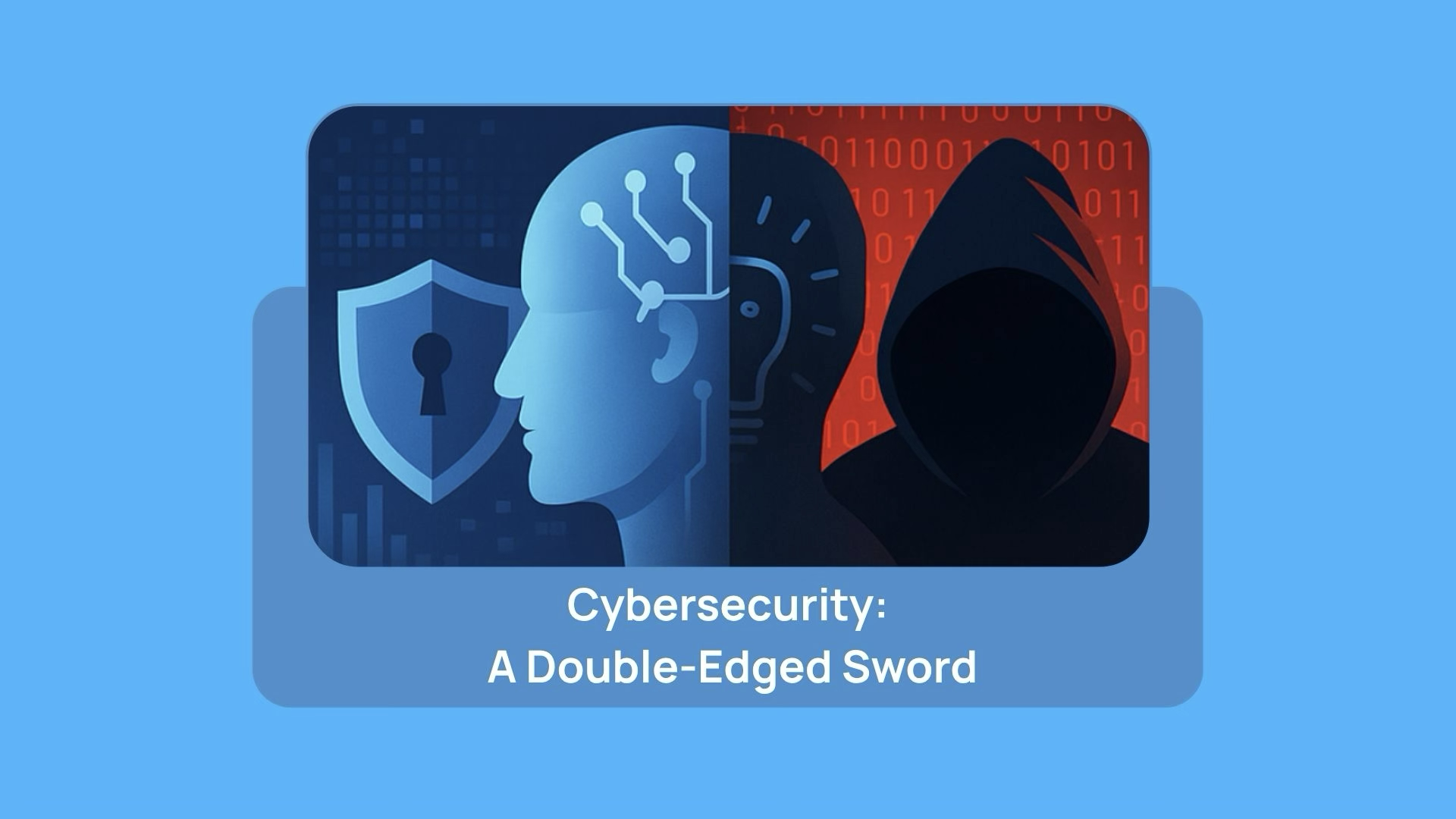Eshant Rana
Security QA Engineer

Artificial Intelligence isn’t science fiction anymore — it’s here, and it’s quickly changing the world around us. One area where its impact is being felt deeply is cybersecurity. From helping us stay one step ahead of cybercriminals to, unfortunately, giving them new tricks to work with — AI is playing both sides of the game.
Let’s talk about what this means.

For those working in cybersecurity, AI is becoming an invaluable partner. With the number of cyber threats increasing daily, security teams are stretched thin. That’s where AI steps in — not to replace people, but to supercharge their abilities.
Every day, networks produce mountains of data — way more than a human team can sift through. AI, especially machine learning, can scan that data in real time, spot weird patterns, and catch threats faster than any analyst ever could.
Think of it like having an assistant who never sleeps, is crazy good at spotting suspicious behavior, and doesn’t miss a beat.
Hackers are always coming up with new tricks. Today’s malware often changes its form to avoid detection (this is called polymorphic malware). AI tools don’t rely on old signatures — they watch how files behave and can flag new, sneaky malware that traditional systems might miss.
The same goes for phishing. AI can scan emails, writing style, and sender history to spot even the most convincing scams that might fool a real person.
When a threat is found, you’ve got to move fast. AI can take automatic actions like quarantining devices, blocking IP addresses, or kicking off reports — all in real time. This gives human teams space to deal with the bigger picture.
One of AI’s coolest powers is prediction. By studying past attacks and threat intelligence, AI can spot patterns and even suggest where the next vulnerability might be. That means you can fix things before something goes wrong.
AI can also monitor user behavior to detect when something’s off. Maybe an employee logs in at 3 AM from another country or suddenly downloads tons of files — AI can flag that. This kind of User Behavior Analytics (UBA) is key to stopping insider threats or compromised accounts.
There just aren’t enough cybersecurity pros out there right now. AI can fill in the gaps — doing the repetitive stuff, making analysis easier, and even helping new folks get up to speed quicker. It’s like giving your team an extra pair of very smart hands.
But here’s the thing — AI isn’t just helping the good guys. Cybercriminals are learning to use it too, and that’s a serious concern.
With generative AI, attackers can now create ultra-realistic phishing emails, fake texts, or even deepfake videos and audio. Imagine getting a voice message that sounds exactly like your boss, asking for a password or money transfer. Yeah… creepy.
AI lets hackers automate their attacks, making them faster and more precise. There’s even malware now that changes its behavior based on what kind of system it’s on — constantly adapting to avoid being caught.
AI systems aren’t invincible. Attackers can trick them, like feeding them bad training data (called poisoning) or subtly altering inputs to confuse them (evasion). This can cause AI to miss threats or misclassify them, opening doors for attackers.

The truth is, AI isn’t replacing cybersecurity pros — it’s empowering them. The future is going to be about teamwork between human insight and machine intelligence.
AI will handle the data crunching, alerts, and automations. Humans will do the strategic thinking, judgment calls, and creative problem-solving. That combo is what makes a solid security team.
As we rely more on AI, we’ll need to protect it too, making sure it’s not biased, that it respects privacy, and that hackers can’t turn it against us.
AI thrives on data. As threats evolve, AI systems will keep learning and adapting — and so should we. Expect security strategies to become more dynamic and less rigid.
The best part? AI can help teams hunt for threats before anything happens — spotting patterns and preparing defenses before the first alert even goes off.
AI is completely reshaping how we approach cybersecurity. It gives defenders powerful tools to act faster, smarter, and more efficiently. But it also raises the stakes, because attackers have access to the same tech.
The future of cybersecurity isn’t about man or machine — it’s about the two working together. Stay curious, keep learning, and don’t underestimate the power of that little AI assistant humming quietly in the background. It might just save the day.